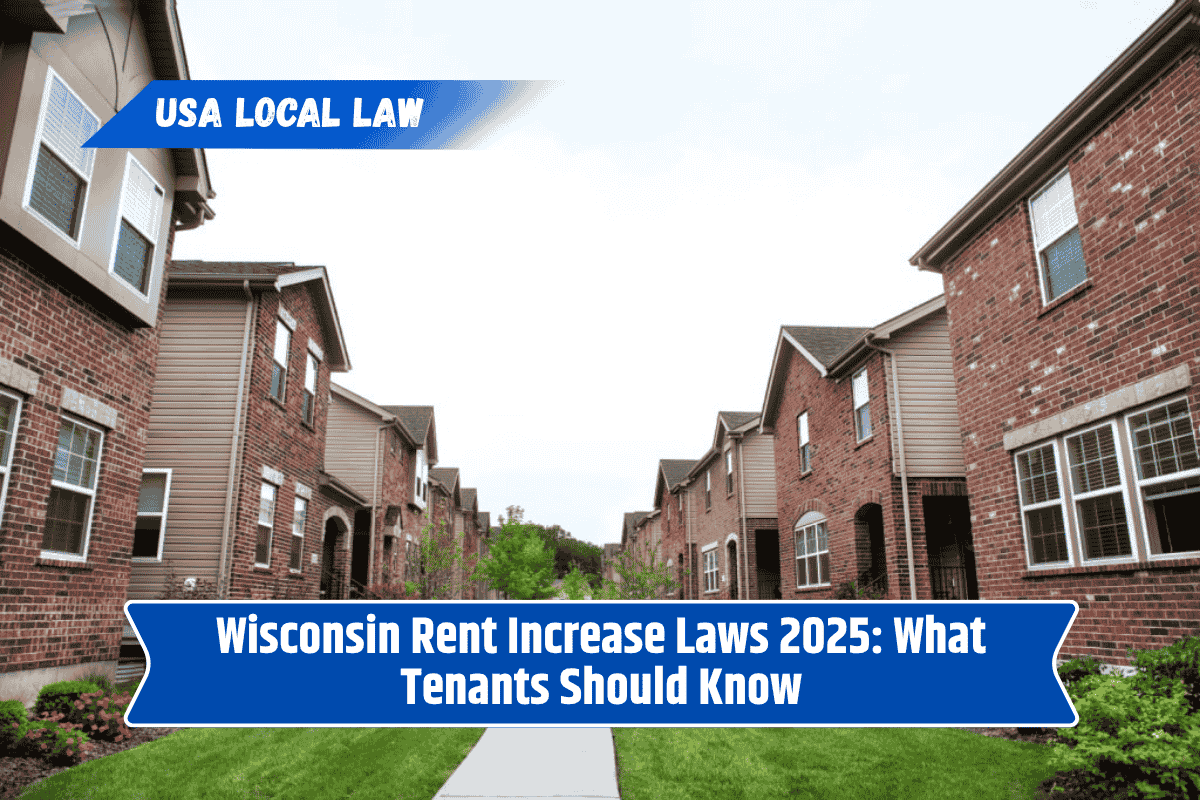Understanding your rights as a tenant in Wisconsin is important, especially when it comes to rent increases. In 2025, there are some key rules landlords must follow if they want to raise your rent. This guide explains those rules in simple English, so you know what to expect and how to protect yourself.
Can Landlords Increase Rent in Wisconsin in 2025?
Yes, landlords in Wisconsin can increase rent. But they must follow certain rules. Rent control is not used in Wisconsin, so landlords are allowed to set the amount they want. However, they must give proper notice and follow state laws.
There is no limit on how much a landlord can raise the rent, but it cannot be done suddenly or unfairly. The increase must not be discriminatory or retaliatory. For example, they cannot raise your rent just because you filed a complaint about something.
How Much Notice is Required Before a Rent Increase?
In 2025, Wisconsin law requires landlords to give written notice before raising rent. The amount of notice depends on the type of rental agreement:
For month-to-month leases: Landlords must give at least 28 days’ written notice before the rent goes up.
For fixed-term leases: Rent cannot be increased during the lease period unless the lease allows it. Once the lease ends, the landlord can raise the rent for the next term, but they must inform the tenant before the new lease starts.
How Should Landlords Give Notice?
Landlords must give written notice of a rent increase. This notice can be delivered in person or by mail. It’s a good idea for tenants to keep a copy of any rent increase notice they receive.
The notice should clearly say how much the rent will increase, when it will take effect, and any new terms if applicable.
What Tenants Can Do If Rent Is Raised
If you receive a rent increase notice, you have a few options. You can agree and continue with the new rent. You can try to talk to your landlord and negotiate. Or, if you cannot afford the new rent, you can choose to move out before the increase takes effect.
You should never ignore a rent increase notice. Always read it carefully and respond on time if needed. If you think the increase is unfair or illegal, you can get help from a local housing agency or legal aid service.
When Is a Rent Increase Illegal?
Even though there’s no rent control in Wisconsin, a rent increase can still be illegal. For example, it’s not allowed if it is:
Meant to punish a tenant for reporting issues like unsafe conditions
Based on discrimination (like race, religion, gender, etc.)
In violation of the lease agreement
If you feel the rent increase is unlawful, you have the right to challenge it.
How to Protect Yourself as a Tenant
Always keep a copy of your lease and any communication from your landlord. Pay rent on time and take care of your rented home. If you feel a rent increase is not fair, talk to your landlord first. If things don’t improve, you can reach out to tenant support services.
Understanding your rights can save you from unnecessary stress. Stay informed and speak up when needed.
In 2025, Wisconsin landlords are still free to increase rent, but they must follow legal steps like giving proper notice and not using rent hikes as punishment or discrimination.
As a tenant, knowing your rights can help you avoid surprises and make better choices when your rent is changed. If you’re ever unsure, it’s always smart to get advice from a trusted housing expert or lawyer.
